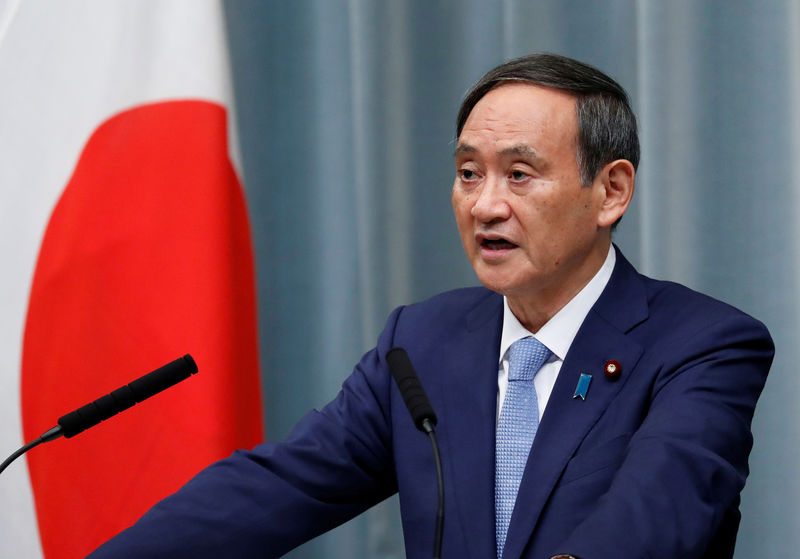SEOUL/TOKYO (Reuters) - Japan and South Korea on Tuesday rejected a media report that the two governments were studying plans for a joint economic program that aims to ease strains over the issue of forced Korean labor in World War Two.
Kyodo news reported on Monday that South Korea and Japan were considering a program involving companies from both countries, but that the Japanese government would not provide funds in line with its position that claims over forced labor were settled in a 1965 treaty.
Japan's Chief Cabinet Secretary Yoshihide Suga said that the report was not true. South Korea's foreign ministry also said in a statement it was "not true".
"While respecting judicial judgment, the (South Korean) government is open to finding reasonable ways that can be accepted by victims and the people of both countries, and continues to communicate with the Japanese diplomatic authorities," the South Korean statement said.
Suga declined comment on whether such an idea for a program might have been in a letter from South Korean President Moon Jae-in given to Japanese Prime Minister Shinzo Abe last week.
South Korea and Japan's bilateral relations have recently deteriorated to some of its worst in decades over a bitter history that includes the 1910-45 Japanese colonisation of the Korean peninsula, the forced mobilization of labor at Japanese companies and the use of "comfort women" - Japan's euphemism for girls and women, many of them Korean - forced to work in military brothels.
